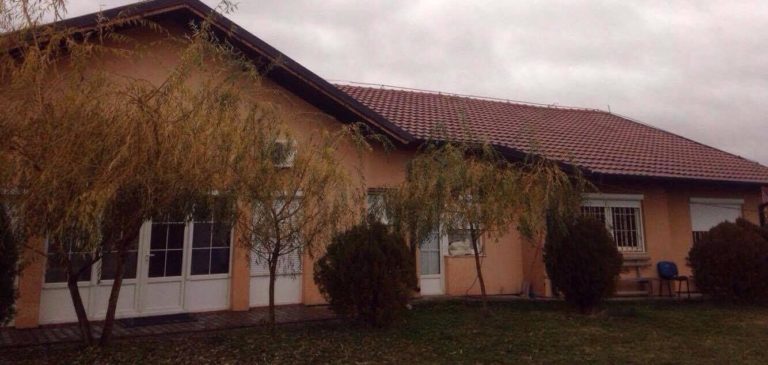In the center for mental health in the village “Lum i madh” in the municipality of Vushtrri, there are currently eleven residents that have mental development problems.
This center was founded with the intention of integrating people with mental disabilities into society. To build this center, more than 160,000 Euro was invested in 2016. The treatment at this center has been successful this far, although there are individuals who haven’t been able to socialize for decades.
The village where this center was going to be built was not friendly and welcoming at first. On the contrary, residents protested because they thought they might have problems with the unpredictable behavior of the residents at the center.
Today, the village sees this center and its “residents” differently.
Lutfi Thaqi, resident of the village, believes that these individuals are not harmful to society.
“They are people too, they are our people. They don’t do anything. Perhaps there is a better place for them to be. I don’t know how they came here but they do no harm. We don’t have problems with them. They are not aggressive. God made them this way, and we can’t lose them,” says Thaqi.
Tahir Krasniqi, director of the center, says that a lot of people seek treatment at this center, and its residents are aged from 18-65.
“We have an agreement with the retirement home. They take our residents when they turn 65,” says Krasniqi, adding that this enables them to free a space for another resident.
Unfortunately it doesn’t happen. “People who come here don’t leave,” he says.
According to him, the staff of the center prepares these individuals to continue their lives with their families and to become part of society again.
The center has committed staff and is currently working over its capacity, which is taking care of 10 individuals at most.
Despite the increase of social awareness toward this social category, people still hesitate to report mental disabilities because of the social stigma that follows them.
Eroll Venhari, former director of the department of Health and Social Welfare in the municipality of Vushtrri, confirms the struggle institutions have had while dealing with the hesitations of families to report these individuals.
Venhari sees gaps in communication between families and the municipality, and blames the latter less.
“…you can’t take any measures without the family’s cooperation,” he says.
He adds that therefore, not every case can be sent to court, where it would be decided whether the individual needs care.
The hesitation of families is not the only problem. A good example would be a family in the village Mihaliq, who have hereditary mental problems and hired a caretaker. When the court and the municipality decided to take charge, Venhari says that the caretaker hid the papers, because of personal benefits.
Residents of this center are usually individuals rejected by their family.
“Individuals who come to this home have no fees. For this reason we want people with no family care, who have nobody who takes care of them,” says Krasniqi.
The residents have different activities at the center: gardening, cleaning tables or yards, and other activities, in order to make them feel safer and to gain trust in the staff of the center.
As one of the first activities to try to integrate these individuals in society, the staff sends them to the shop to buy something symbolic.
“Every time they go out, even if it is for 2-3 minutes, it is a great joy for these individuals,” says Tahir Krasniqi, the director of the Center for Mental Health.
In Kosovo’s law on mental health it is stated that this law aims to protect and promote mental health, prevent the problems associated with it, guaranteeing the rights and improving the quality of life for persons with mental disorders. This law defines procedures and conditions for the protection of mental health by providing health care, the proper social environment for people with mental disorders, and preventive policies for the protection of mental health.
According to the Kosovo Agency of Statistics, during 2016, a total of 61,865 individuals have sought help at all seven service centers for mental health that exist in Kosovo. At the same time, there have been 8,458 home visits and 22,872 day stays that have been recorded.
Shkurte Berisha








